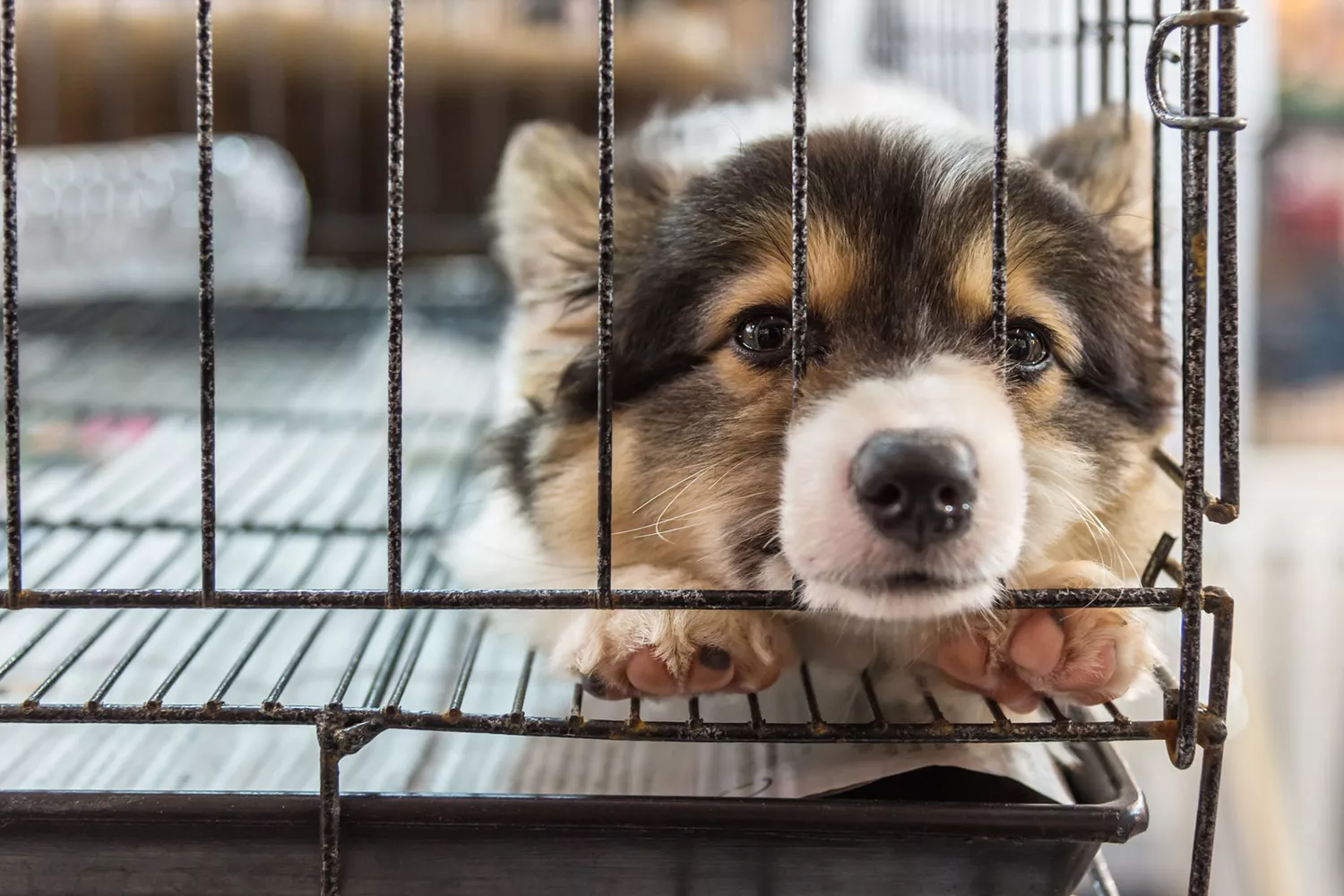
Most people understand that pup mills are frowned upon, however do you really understand what they are? A puppy mill is an industrial center that types canines to offer, often without regard for their health. They keep a low overhead expense to maximize their revenues, however they’re identified by bad conditions and the inhumane treatment of canines.
It may be extremely inhumane, however it’s still not banned. According to the Humane Society, “oftentimes, pup mills are not illegal. In the majority of states, a breeding kennel can lawfully keep dozens, even hundreds, of pets in cages for their whole lives, as long as the pets are offered the essentials of food, water, and shelter.”
Although there are countless homeless canines in animal shelters, there’s still a substantial demand for pure-blooded young puppies. Puppy mills make the most of that need, breeding numerous countless unhealthy puppies and shipping them to animal shops across the country. The Puppy Mill Project estimates there are 10,000 puppy mills in the United States reproducing over 2 million puppies. Only a fraction of them are accredited with the United States Department of Agriculture (USDA).
” We are not against the breeding of pet dogs,” Amy Nichols, vice president of Companion Animals with the Humane Society, states. Industrial breeders have no regard for the canines’ quality of life in a mill, valuing profit over health and safety.
How Puppy Mills Maximize Profits
Little, Dirty Living Spaces
Pup mills tactically optimize their area to make the most cash with the lowest operation expense. This implies packing dogs into tiny metal cages stacked on top of one another, frequently living in their own dirt.
No Human Interaction
The young puppies are missing out on out on important chances to interact socially with people and get utilized to being dealt with. “The canines don’t get human contact.
Nonstop Breeding and Quick Separation
Young puppy mills do not focus on wanted traits in their puppies like private breeders do. They’ll keep breeding, even if the moms and dads have a bad personality or diseases.
Pet Auctions
The pup mill organization, or dog farming, makes up a large piece of the economy for Amish communities. In Amish mills, pet dogs are treated like animals– caged their whole lives and just utilized to reproduce repeatedly up until outdated. Auctions prevail in the Amish community, where breeding pet dogs are lined up and quote on in front of an audience.
Deceptive Appearances
Because young puppy mills do not keep track of family tree, they can not guarantee a puppy is 100 percent pure-blooded. Frequently, they will lie about the roots of the pet dog and claim it’s a particular breed when the reality is quite various.
Little to No Veterinary Care
These poor puppies get nearly no healthcare because it is too expensive. Without regular checkups, the pet dogs can develop infections and spread disease. They likewise get definitely no grooming, teeth cleansing, or nail clipping, which can result in painful problems.
Unsafe Transport
When it comes time to ship the pups off to the pet shop, the dogs deal with a long journey by truck. They being in their own excretions for hours, through sweltering summer heat or freezing temperatures, afraid and alone.
Purchaser Beware
As a prospective pet dog owner, you must be thorough in investigating the origins of your puppy. Puppy mills will do whatever it takes to make a buck, including impersonating an accountable breeder or lying about the family tree of the pup. It’s the duty of the public to only support trusted breeders, shelters, and saves.
” It’s a buyer-beware scenario. Where is the pet really coming from? You wish to check out it further,” Nichols says. “Ideally, you would go check out where the pup and parents are living and see the conditions and have a conversation with the breeder.”
A report from the Better Business Bureau (BBB) shows that from January through October of 2021, there were 3,000 puppy mill frauds reported– 165 percent more puppy frauds in the U.S. than during the same period in pre-pandemic 2019. But this isn’t the entire image.
Lily Velez is head of unique reports at Veterinarians.org. She informs Daily Paws that professionals state 80 percent of puppy-related online advertisements are likely fake. “Unfortunately, according to a representative of the BBB, just a really little number of individuals ever wind up reporting frauds of which they’ve been a victim. The most common factor is just a sense of humiliation at having been scammed.” Potential animal parents usually lose between $700 and $1,100 per puppy.
How Do Puppy Mills Sell Their Puppies?
It’s all based on demand. Velez states that in 2021, people were most interested in pure-blooded small dogs or toy pet dogs, specifically designer types such as Maltipoos or Yorkipoos. “Poodles are a few of the most popular types we’ve seen from studying the fraud archive, in addition to French bulldogs, English bulldogs, Yorkshire terriers, and corgis [the Pembroke Welsh reproduce more so than the Cardigan],” she states. “Jack Russell terriers and schnauzers also commonly turn up.”
Puppy mills utilize the following outlets to sell their puppies:
Pet Stores
A bulk of the pups in animal shops come from a pup mill. Accountable breeders will never ever offer their pups to an animal shop because they choose to satisfy the brand-new family face to face to ensure their canines go to excellent houses. Pet stores may use the word “adopt” to misguide customers, but do not be tricked– buying a young puppy is not the same as adoption. If you request the origins or breeder paperwork from an animal store partner and they hesitate, the pet might be an item of a pup mill.
Phony Breeder Websites
Believe it or not, puppy mill kingpins will reach pretending to be breeders to sell their young puppies. For this factor, you need to always examine where the pup is coming from, even if the breeder’s website seems family-centric.
Online Classifieds
Anybody declaring to sell a fresh, healthy young puppy on eBay or Craigslist is most likely not an accountable breeder with qualifications.
Pop-Up Stands, Markets, or Festivals
It ‘d be difficult to withstand a squishy young puppy with a big red bow around their neck, however where did they originate from? If you see someone selling pups on the side of the road or giving them as rewards, they’re most likely not from a trusted source.
What Is Being Done to Help?
Sadly, there aren’t stringent laws managing puppy mills. The Animal Welfare Act (AWA) controls business pet dog breeding, but the minimum requirements of care are simply enough for the animal to endure. Family pet stores still purchase from unlicensed breeders, and inspectors stop working to report inhumane conditions.
When you purchase a young puppy from a pup mill pet shop, you might feel you’re conserving that puppy. You can also inform your loved ones on young puppy mills and highlight the value of supporting saves over pet stores. It’s a long roadway to the eradication of young puppy mills, however by spreading awareness, we can slowly get rid of the requirement for such inhumane companies.











